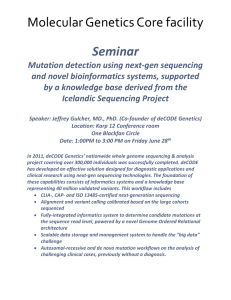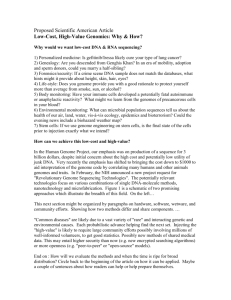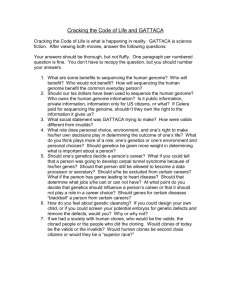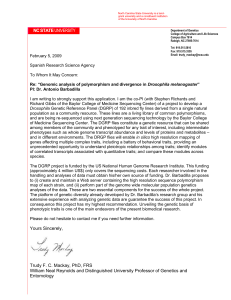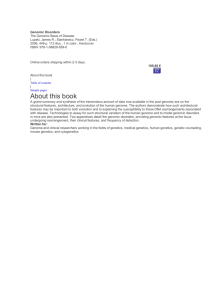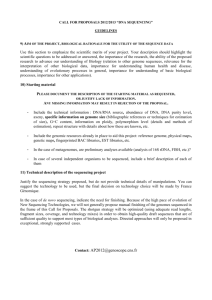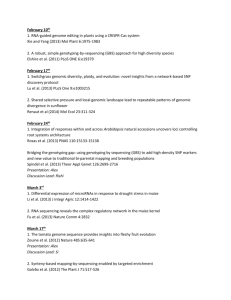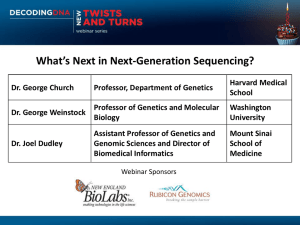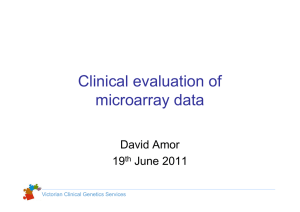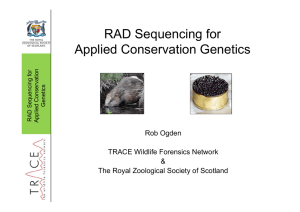Ethical challenges arising from clinical use of next-gen sequencing and array genomic scanning
advertisement
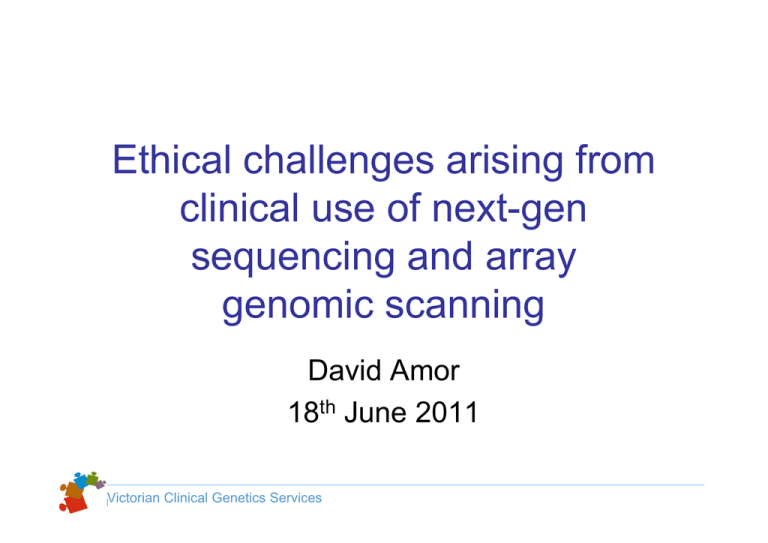
Ethical challenges arising from clinical use of next-gen sequencing and array genomic scanning David Amor 18th June 2011 Victorian Clinical Genetics Services Victorian Clinical Genetics Services MiGenome 8 June 2011 • The “MiGenome” iPad application puts genomic information at the individual’s fingertips, allowing an individual to visualize their genome and interrogate it for mendelian disorders, disease risk and pharmacogenomic drug response. • “By making sequencing more affordable and developing tools like MiGenome, we believe that we can significantly accelerate the adoption of individual genome sequencing which will, in turn, pave the way to a future where an individual’s genome sequence informs and personalizes his healthcare.” (Jay Flatley) Victorian Clinical Genetics Services Full genome sequencing challenges established ethical norms • Informed consent, especially for predictive testing – Impossible to counsel patients about the full range of possible results – Significant departure from traditional standards of care • Genetic testing of asymptomatic minors • Disclosure (or non-disclosure) of results – Testing will generate more data than can be presented/interpreted by an individual clinician – Is withholding information (selective disclosure) ethically justified, and who decides Victorian Clinical Genetics Services Full genome sequencing also introduces potential harms • Psychological impacts • Genetic discrimination – Genetics of intelligence • Use of resources – Test is cheap but interpretation expensive • Unnecessary termination of pregnancy Victorian Clinical Genetics Services
